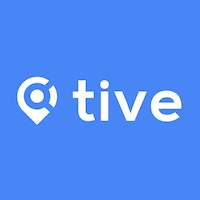Shock and Product Sensitivity Monitoring with Tive

February 4, 2022
July 8, 2025
x min read

There are a few universal truths amid the chaos and disruption of today’s global supply chain:
- Stakeholders ranging from shippers and BCOs to freight forwarders and logistics service providers want to know where their cargo is at any moment in time.
- No one likes surprises when cargo reaches its destination, which is why real-time visibility and end-to-end track-and-trace capabilities at the container, pallet, and SKU level grow in importance with each passing day.
- Those capabilities must expand beyond location, temperature, and humidity tracking to include real-time monitoring of shock impacts, tilts, vibrations, and light exposure.
This article explores how Tive’s proprietary tracking sensors and software provide real-time shock and product sensitivity monitoring and presents five use cases where this technology plays a crucial role in ensuring shipments arrive on time, in full, and intact.
Shock and Product Sensitivity Monitoring Defined
A certain amount of movement or impact is likely with any shipment in any mode of transportation. However, tilts, shock events or vibrations beyond the acceptable thresholds jeopardize the integrity and usability of the contents.
- Tilts: Many products are susceptible to damage if stored or transported at an angle. Examples include anything made of glass, medical equipment, and home appliances. Real-time sensors can provide insight into the degree and direction of the tilt.
- Shock events: Shipments get dropped by workers or jarred by a forklift during loading and unloading, and bounce around a truck while in transit over rough roads.
- Vibrations: Though generally less impactful than shock events, excessive vibrations can adversely affect the operating performance of machinery and the stability of other products. Vibration monitoring helps ensure fewer equipment failures, reduced maintenance costs, and longer service life.
- Light exposure: A container or package opened during transit could damage contents or may indicate possible theft.
These events can result in damaged, detained, or lost cargo. Real-time monitoring of shipments provides the insights needed to make an immediate adjustment to save the load or expedite a replacement shipment if needed.
5 Use Cases Requiring Shock and Product Sensitivity Tracking
Here are five examples of Tive real-time trackers and alerts in action.
- Electronics Manufacturers: A large electronics manufacturer uses Tive trackers to monitor shipments from contract manufacturers in Asia to distribution hubs in North America. If a shock event occurs, the manufacturer can quickly identify the precise time and location of the incident and work with the carrier to resolve the issue.
- Industrial Equipment Manufacturers: Complex, expensive machines must arrive intact and ready for installation. By tracking shock, tilt, and vibration levels while in transit, an industrial equipment manufacturer can prepare to thoroughly inspect cargo upon arrival to minimize the damage.
- Museums & Fine Art Dealers: The National Gallery of London and Masterpiece International rely on Tive’s Solo 5G tracker and real-time alerts to gain insight into the shipments of priceless artwork.
- Automotive Manufacturers: Engines and other components are sensitive to rough handling, vibrations, and tilts and often arrive damaged. A European manufacturer relies on Tive’s end-to-end visibility solution and alerts to get detailed information on inbound shipments from suppliers.
- NASCAR Teams: Racecars can represent an investment of $400,000 or more. While in transit to the next race, the slightest hint of a problem or damage to any part of the car can be a significant problem. Real-time alerts notify crews to be ready for repairs or have replacement parts sent in time for the race. Tive and project44 used real-time visibility trackers and alerts to monitor the progress of a car en route from North Carolina to New Hampshire for the Foxwoods Resort 301 race in July 2021.
In each case, Tive’s track-and-trace technologies and real-time alerts help inform stakeholders of extreme shock events, tilts, vibrations, and light events. These actionable insights pave the way for mitigation steps and enable supply chain professionals to identify when and where the incidents occur, making it possible to adjust for future shipments.
With Tive, Every Shipment Matters
Tive makes it simple to actively manage shipments. All the real-time data and alerts related to tracking tilts, shock events, vibrations, and light exposure can help companies save time, money, and customers. Contact Tive today to learn more.


